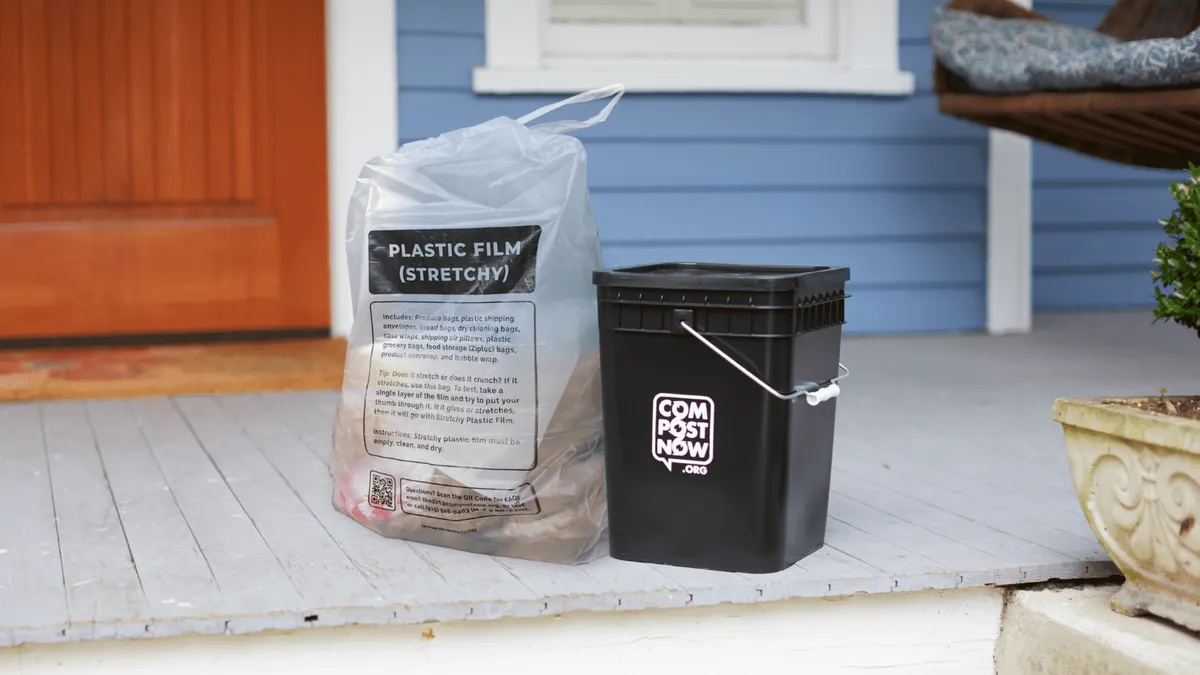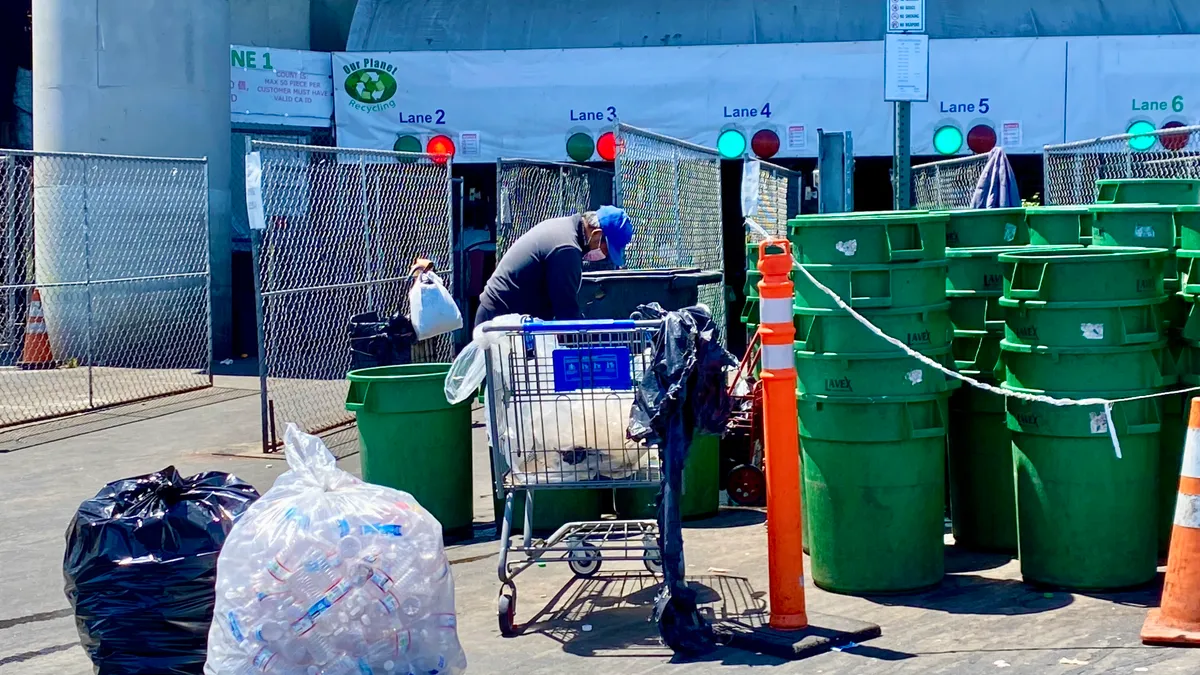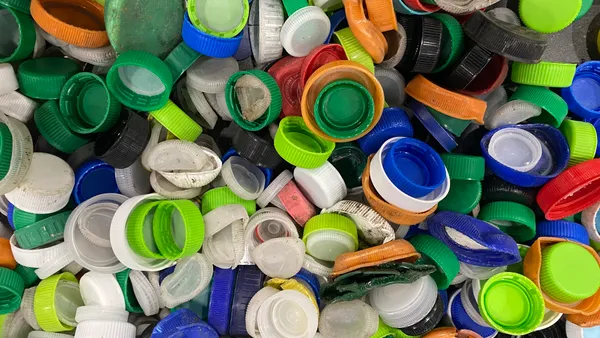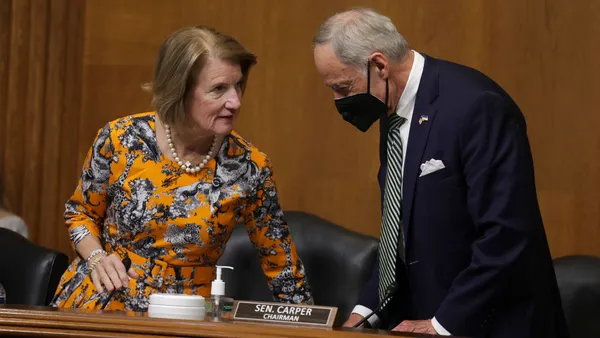Dive Brief:
- Recology's Recycle Central material recovery facility in San Francisco has completed a $11.6 million upgrade that will allow it to extract more value from the city's recyclables, as reported by KTVU.
- The new line will increase the capture of small or medium online shipping boxes and lighter plastic food and beverage containers. The line can also be adapted to recover other new materials in future years.
- This upgrade increases the facility's capacity by 170 tons per day. New features include an advanced metering system for inbound materials, a presort line with 14 stations, two new lines of spinning disk screens, new optical sorters for separating different types of plastic and a "state-of-the-art" glass cleaning system.
Dive Insight:
San Francisco will be one of the first major cities to arrive at the date of its "zero waste" goal — 2020 in this case — though doesn't seem likely to achieve it at this point. Even with a composting mandate and bans on plastic bags and polystyrene foam, the city has still found it difficult to capture the remaining value from its refuse. Waste-to-energy is only used to process residuals from a composting facility and the city expects to move away from that arrangement in the future.
This MRF upgrade has been cited as a way to improve the diversion rate and its advanced sorting capabilities should help make some progress. While more municipalities are now shying away from glass, some new facilities have been building in the technology to handle it and see the material as valuable when separated properly. A recent report from Resource Recycling Systems found that even flexible packaging can be recovered at single-stream facilities under the right conditions.
While organizations such as the Association of Plastic Recyclers have been working to improve communication between manufacturers and recyclers around product design, it can still be hard for MRFs to keep up with changes in the waste stream in real time. California state officials have expressed interest in some form of extended producer responsibility system that ensures what manufacturers are selling can be easily recycled, though that concept is often unpopular among companies.












